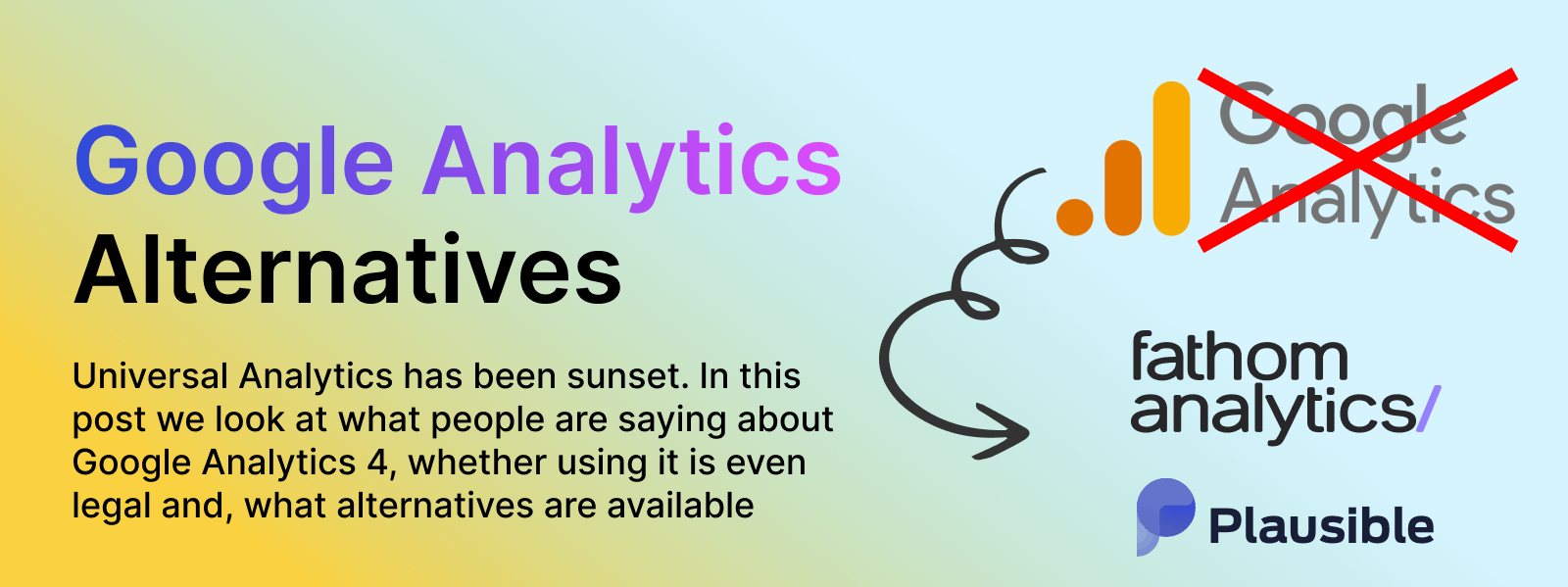Introduction
The e-commerce landscape is in constant motion, with artificial intelligence (AI) now a driving force behind its evolution. No longer a futuristic vision, AI is a practical tool employed by businesses to improve the customer experience, optimize operations, and boost sales. This integration of AI is fundamentally reshaping how online businesses function, providing significant advantages in today's competitive market. Understanding these changes is essential for any business aiming to succeed in the modern online marketplace.
The Impact of AI on E-commerce
AI's influence on e-commerce is comparable to a conductor expertly guiding an orchestra. Each instrument, representing different facets of the business, contributes to a unified performance. AI orchestrates these elements, optimizing each for maximum impact. For instance, AI can analyze large quantities of customer data to uncover patterns and predict future behavior. This information can then be used to personalize product recommendations, resulting in higher conversion rates and greater customer satisfaction. Furthermore, AI can automate tasks like inventory management, allowing human employees to concentrate on strategic initiatives. This blend of data analysis and automation helps businesses increase efficiency and cut costs, which naturally leads us to explore the various benefits AI brings to e-commerce.
The Benefits of AI in E-commerce
The advantages of using AI in e-commerce are multifaceted, extending beyond simply increasing sales figures. AI presents the opportunity to create a truly personalized shopping experience for every customer. Imagine a personal shopper dedicated to each individual visiting your website. AI algorithms can analyze browsing history, purchase patterns, and even social media activity to suggest products aligned with individual tastes. This personalized approach not only improves the customer experience but also builds loyalty and encourages repeat purchases. Beyond personalized recommendations, AI-powered chatbots offer immediate customer support.
The Future of AI in E-commerce
Looking ahead, the integration of AI in e-commerce is poised for continued expansion. Emerging technologies like voice search and augmented reality are being combined with AI to create even more immersive and interactive shopping experiences. Platforms like PureClarity, with its focus on AI-driven personalization and conversion rate optimization, demonstrate the industry's trajectory. These advancements empower businesses to gain a deeper understanding of their customers, anticipate their needs, and create genuinely personalized experiences. As AI continues to develop, its influence on e-commerce will only deepen, transforming the online landscape and establishing new standards for customer engagement. This naturally leads to a deeper exploration of AI personalization in e-commerce.
AI Personalization in E-commerce
Having examined the impact and advantages of AI in e-commerce, it's evident that personalization is a key strength. AI's ability to craft unique shopping experiences for each customer is revolutionizing the digital marketplace. This shift parallels the transition from a generic department store to a custom tailor: instead of a one-size-fits-all model, AI allows businesses to design experiences specifically tailored to individual preferences. This focus on individual needs fuels the increasing adoption of AI in the e-commerce sector. So how does AI achieve this level of personalization?
How AI Personalizes the Shopping Experience
AI achieves this advanced personalization through sophisticated data analysis and customer behavior tracking. For example, AI algorithms can scrutinize a customer's browsing history, noting product views, time spent on each page, and even cart abandonment points. Moreover, AI can track purchase patterns, identifying frequently purchased items, brand preferences, and price sensitivity. This data creates a comprehensive customer profile, enabling AI to anticipate future behavior and tailor recommendations accordingly. This predictive capability forms the basis of a truly personalized shopping experience. But how is this data used effectively?
Leveraging Data for Personalized Recommendations
This data-driven approach extends beyond basic product suggestions. AI can personalize the entire shopping experience, from website arrival to post-purchase follow-up. For example, AI can dynamically alter website content, displaying products and promotions relevant to the individual user. This means two customers visiting the same website could encounter completely different content tailored to their specific profiles. In addition, AI can personalize email marketing, delivering targeted messages that resonate with specific customer segments. This targeted communication significantly improves engagement and drives conversions, prompting us to examine real-world examples of AI personalization.
Real-World Examples of AI Personalization
Platforms like PureClarity demonstrate the potential of AI-driven personalization in e-commerce. PureClarity provides a range of AI-powered tools that help businesses create highly personalized shopping experiences. These tools include real-time product recommendations, personalized email recommendations, intelligent pop-ups, and even e-commerce focused chat. By analyzing customer data and behavior, PureClarity's AI algorithms can predict product interest and display the right products at the optimal time. This targeted approach not only elevates the customer experience but also improves conversion rates and sales. This naturally leads to a closer examination of AI-powered product recommendations.
AI-Powered Product Recommendations

Continuing our discussion on personalized shopping, let's delve into a key application of AI in e-commerce: product recommendations. These intelligent suggestions are more than just helpful features; they're powerful tools for increasing sales and building customer loyalty. This shift towards AI-driven recommendations mirrors the transition from a generic store clerk to a knowledgeable personal stylist who understands your individual style and needs. Understanding how these recommendations work is essential.
The Mechanics of AI-Driven Recommendations
AI product recommendations function by analyzing extensive datasets to uncover patterns and predict customer preferences. This involves tracking customer interactions like browsing history, past purchases, and even time spent on individual product pages. For example, if a customer frequently views running shoes and adds them to their cart, the AI can infer an interest in fitness and recommend related items, like athletic wear or fitness trackers. This analysis enables a highly tailored experience, which naturally leads us to the different types of recommendations.
Different Types of AI-Powered Recommendations
Several AI-powered recommendation approaches exist, each tailored to specific customer needs and shopping scenarios. Some common types include:
- Collaborative filtering: This method identifies customers with similar purchase histories and recommends items favored by that group. It's akin to seeking recommendations from friends with similar tastes.
- Content-based filtering: This approach analyzes the attributes of products a customer has expressed interest in and suggests similar items. For instance, if a customer buys a particular coffee brand, the AI might recommend other products from that brand or similar coffee blends.
- Hybrid approaches: Many systems combine collaborative and content-based filtering for even more precise recommendations. This combined approach provides a more nuanced understanding of customer preferences. Now, let's explore how these benefit businesses.
The Benefits for E-commerce Businesses
Using AI-powered product recommendations provides significant advantages for e-commerce businesses. By offering personalized suggestions, businesses can increase conversion rates, boost average order value, and improve customer satisfaction. It's like having a salesperson who anticipates customer needs and makes helpful suggestions, leading to a more positive and productive shopping experience. Furthermore, AI-driven recommendations can reduce cart abandonment by offering alternatives or complementary products. PureClarity specialize in using AI for personalized recommendations and have proven successful in improving conversion rates and driving sales for online retailers. This highlights the tangible impact of AI and its benefit to competitive businesses. Next, let's explore how AI transforms customer service.
Chatbots and Customer Service

Building on the advantages of AI in areas like personalized recommendations, let's examine how AI is enhancing customer service. Traditionally, customer service often involved lengthy wait times and frustrating phone calls. However, AI is changing this through the use of chatbots. These automated assistants provide instant support, 24/7, addressing inquiries and resolving problems quickly. This constant availability greatly improves customer satisfaction and provides a sense of ongoing support.
How AI Chatbots Improve Customer Experience
AI chatbots are more than simple automated response systems. They employ natural language processing (NLP) and machine learning to understand and respond to customer inquiries with increasing accuracy and complexity. For instance, a customer might ask about their order status or a product feature. The chatbot can access relevant information and provide a personalized, real-time response. These bots also learn from previous interactions, improving their ability to handle complex requests and offer custom solutions. This learning ability distinguishes AI chatbots from conventional automated systems. Now, let's delve into the benefits of 24/7 support.
The Advantages of 24/7 Support
The always-available nature of AI chatbots is especially valuable in the fast-paced world of e-commerce. Customers receive assistance whenever needed, regardless of time zone or business hours. This eliminates the frustration of waiting and ensures prompt issue resolution. Chatbots can also handle a large volume of simultaneous inquiries, freeing human agents to focus on complex or sensitive matters. This efficient resource allocation enhances customer service responsiveness. Beyond basic customer service, chatbots play an expanded role.
Beyond Basic Customer Service: The Expanding Role of Chatbots
AI chatbots do more than simply answer questions and resolve issues. They can actively guide customers through the sales process and offer personalized product recommendations. For instance, a chatbot can suggest items based on a customer's browsing history or past purchases, similar to the recommendation systems discussed previously. They can also gather valuable customer feedback, offering insights into customer preferences and areas for improvement. Platforms recognize this potential by including chatbot functionality in their tools. This integration reflects the growing trend of using AI to improve customer interactions and create a more seamless and personalized shopping experience. This makes AI a key element of overall business strategy, prompting us to discuss its role in inventory management.
Inventory Management with AI
Beyond customer-facing applications, AI in e-commerce has a considerable impact on back-end operations, particularly inventory management. Effective inventory control is essential for profitability. Overstocking ties up capital and creates risk, while understocking leads to lost sales and dissatisfied customers. AI provides the means to achieve a balance, optimizing inventory levels for maximum efficiency. Let's explore how AI predicts demand.
Predicting Demand with AI
AI algorithms excel at forecasting demand by analyzing historical sales data, seasonal trends, and external factors such as economic conditions and social media activity. For example, an AI system can detect a surge in winter coat searches as temperatures drop, indicating the need to increase inventory. This allows businesses to proactively adjust stock levels, ensuring product availability at the right time. This minimizes stockouts and maximizes sales. Now, let's look at how AI optimizes stock levels.
Optimizing Stock Levels with AI
The ability to accurately predict demand translates to optimized stock levels. Rather than relying on intuition or outdated methods, AI provides data-driven insights to inform purchasing decisions. This means businesses can reduce capital tied up in excess inventory, freeing resources for other areas. AI can also identify slow-moving items, enabling targeted promotions or price adjustments to minimize losses. This improves profitability and reduces waste. Now, how does AI streamline supply chains?
Streamlining Supply Chain Operations
AI further helps streamline supply chain operations. By anticipating demand fluctuations, AI can optimize logistics and warehousing, ensuring smooth product flow from supplier to customer. This involves optimizing shipping routes, predicting potential delays, and automating warehouse tasks. This end-to-end optimization minimizes lead times and lowers operational costs, benefitting both businesses and customers. The wider potential of AI to optimize various aspects of business operations, makes a comprehensive AI strategy increasingly vital for success. This leads us to the future of AI in e-commerce.
Future of AI in E-commerce

AI's current impact on areas like inventory management and customer service is significant, but the future holds even more transformative potential. This is akin to the shift from early automobiles to self-driving cars: the fundamental function remains transportation, but the experience and possibilities are fundamentally different. This next generation of AI tools will reshape how businesses function and customers interact with online stores. Let's explore the rise of hyper-personalization.
The Rise of Hyper-Personalization
Building on current methods, AI is moving toward hyper-personalization. This means online shopping will become increasingly tailored to individual preferences, going beyond basic product recommendations. Imagine a store adjusting lighting, music, and even scents based on your past preferences. This is the level of personalized experience AI promises to bring to the digital space. This deep customization is crucial for truly capturing each customer's unique needs. Beyond this, how will customers interact with products?
Predictive Analytics and Proactive Customer Engagement
AI will not only respond to customer behavior but anticipate it. Predictive analytics will allow businesses to foresee needs and proactively offer solutions. This could involve sending personalized reminders for recurring purchases, suggesting complementary products, or offering proactive support before problems arise. This fosters loyalty and repeat business, making AI a key driver of sustained growth. With this increasing power, what ethical considerations arise?
The Ethical Considerations of AI in Ecommerce
As AI becomes more sophisticated, ethical considerations must be addressed. Data privacy, algorithmic bias, and job displacement are all important concerns requiring careful attention. The industry must strive to develop responsible AI practices prioritizing customer well-being and fairness. This is essential to ensure AI benefits both businesses and consumers. Businesses prioritizing ethical AI practices will build trust and maintain a strong reputation.
Ready to improve your e-commerce business with AI? Discover how PureClarity can help you personalize the customer journey, optimize conversions, and increase sales. Visit PureClarity today to learn more and start your free trial.






